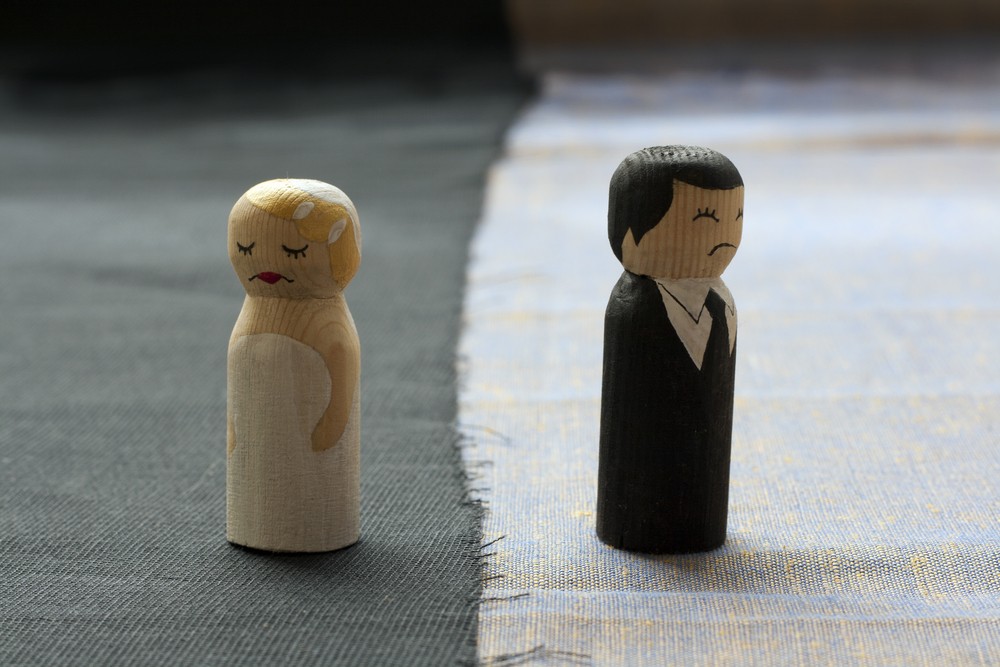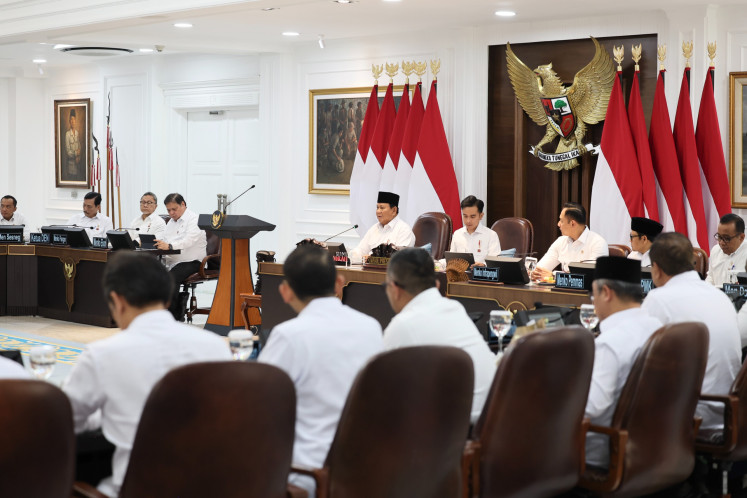Popular Reads
Top Results
Can't find what you're looking for?
View all search resultsPopular Reads
Top Results
Can't find what you're looking for?
View all search resultsMore women opt for divorce despite risks
Change text size
Gift Premium Articles
to Anyone
A
growing number of Indonesian Muslim women are opting for divorce rather than staying in an abusive marriage, even though the country’s legislation does not guarantee their rights after they split up.
Divorce has become more common since the Muslim-majority country enacted the 1974 Law on marriage, which allows Muslim women to file for divorce.
The Directorate General of Religious Court System Bodies (Badilag) recorded 351,395 divorce cases last year, up from 345,174 cases in the previous year. The Badilag data show that 71.8 percent of all divorce applications last year were filed by women, up from 69.7 percent in the previous year.
The main reason for women to end their marriages, according to the Badilag data, is an “inharmonious relationship” with their spouses, which some women’s rights activists say is another way of saying they are victims of domestic violence.
“Many women have been abused in their marriage, but are reluctant to tell the truth and choose to simply say they have an ‘inharmonious relationship’,” National Commission on Violence Against Women (Komnas Perempuan) commissioner Indraswari told The Jakarta Post on Monday.
Wulan Julia, a 42-year-old now-single mother of two children, said she had filed for a divorce in 2007, after seven years in what she alleged was an abusive marriage with her husband.
When she made that decision, she said she was fully aware she was not ready financially. However, she said she had opted to move on and live a life free from physical violence.
“It was considered a taboo for a woman to file for divorce at the time, especially since my former husband was an Indonesian Military officer. But I realized that I had to move on with life,” she said.
While divorces in many places have their pitfalls, a post-divorce life in Indonesia can be more challenging.
For some Indonesian women, life after splitting up from their husbands is hard, as they have to find a new source of income after losing their male breadwinners, Dina Afrianty, an associate of the Center for Indonesian Law, Islam and Society from the University of Melbourne, said on Tuesday.
The Marriage Law stipulates that men who divorce their wives are responsible for providing financial support to their former wife and their children. But, as of today, there is no legal mechanism to ensure they fulfill their obligations.
“In many court rulings, judges don’t include the responsibility of the husband to provide financial support during the iddah [waiting period] and to pay formut’ah [consolation gifts],” Dina said.
But even court rulings made little difference, because men often ignored them, Dina said, adding there was no legal avenue for women to sue their former husbands for failing to abide by the rulings.
Unlike in Indonesia, Singapore has clear mechanisms to ensure the wellbeing of women and children after a divorce. The country’s legal system clearly states that a divorce has to be accompanied by a maintenance order, which states the amount to pay, when to pay for it and the method of payment. Similarly, in Malaysia, a divorced wife has the right to obtain support from her ex-husband. The court can penalize the husband for failure to do so.
It does not help that most women in Indonesia decide to stay at home after being married, making it more difficult for them to get a decent job after years of being a housewife.
“Some women might face economically challenging lives, but they still opt for divorce, because they can’t stand living in an abusive household for a long time,” said Sri Wiyanti Eddyono, a lecturer at Gadjah Mada University who previously worked as a lawyer with the Legal Aid Foundation of the Indonesian Women’s Association for Justice (LBH APIK). (win)










